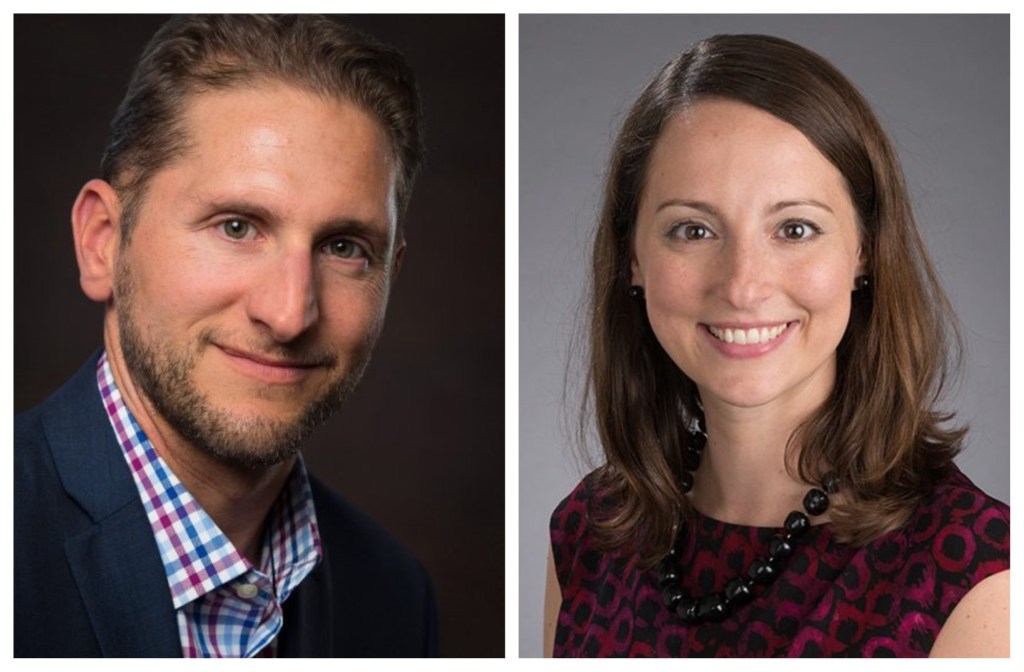As some polls show trust in U.S. elections waning, a new center at UC San Diego in La Jolla is seeking to offer solutions and further education and cement what it calls “the bedrock of democracy.”
UCSD formed the Center for Transparent and Trusted Elections this summer with the help of a four-year, $2.5 million grant administered by the Election Trust Initiative, a philanthropic group that says it “develops and supports strategies to strengthen America’s election administration systems” that make elections secure, transparent, accurate and convenient.
The new center, which describes itself as nonpartisan, is based in an office in the university’s public engagement building. It will fund research and partnerships with election officials across the nation.
The center’s co-directors are Thad Kousser, a professor in UCSD’s Department of Political Science in the School of Social Sciences, and Lauren Prather, an associate professor of political science in the School of Global Policy and Strategy.
They plan to use the grant to test transparency initiatives, including:
• Public tours of election facilities
• Election audits and live-streamed ballot counting
• Crafting concise, clear explanations of election safeguards
• Building partnerships and involving more students in election science
Prather said the partnership aspect is particularly important as they work with election officials and share data with them.
“Sometimes academic research happens in a vacuum,” Prather said. “It happens on campus and we talk to each other and theorize with each other … but this is distinct from that in that we’re doing that part of it but we’re also working closely with the people that are actually doing the work, the practice of elections.”
Though the center is new, similar research at UCSD dates to 2021, with funding through a series of grants, according to Kousser.
The Center for Transparent and Trusted Elections will continue the work of the university’s Yankelovich Center for Social Science Research, which Kousser co-directs, and the Future of Democracy Initiative, of which Prather is a member.
It also will build on UCSD’s partnerships with institutions such as the MIT Election Data + Science Lab, the SNF Agora Institute at Johns Hopkins University and The Elections Group.
“With this new center, we’ll be able to expand that research,” Kousser said. “UC San Diego has become a national leader in these research-practice partnerships. This grant is going to allow us to double down on those activities.”
Prather and Kousser bring a wealth of knowledge on elections.
Prather has long been interested in election trust and transparency and co-wrote “Monitors and Meddlers: How Foreign Actors Influence Local Trust in Elections” with Sarah Sunn Bush of Yale University in 2022.
Kousser’s work has been featured in multi-university studies and presented to the U.S. Election Assistance Commission.
After the 2020 presidential election triggered the “Stop the Steal” movement after President Donald Trump’s defeat, the need grew to explain election results and drive voter trust, the directors say. But Prather noted that the decline in election confidence can be traced to allegations of foreign interference in the 2016 election that Trump won.
That points to a strong connection between election trust and whose favored candidates win or lose, she said.
“As the United States has gotten more polarized and elections have increasingly become viewed as more existential, that reaction to winning and losing has gotten more dramatic,” Prather said. “So people tend to be more responsive to that win or loss in terms of how it affects their confidence.”
The center’s nonpartisan element is shown in its collaborators, according to Kousser. The first participating states were Texas, Georgia and Colorado. After that, Arizona and Connecticut joined in.
“We work with red states and blue states,” Kousser said.
“All of this work is nonpartisan and all of these officials are just trying to ensure that the vote count is fair — to be good umpires,” he said. “And we’re trying to help support that.” ♦

